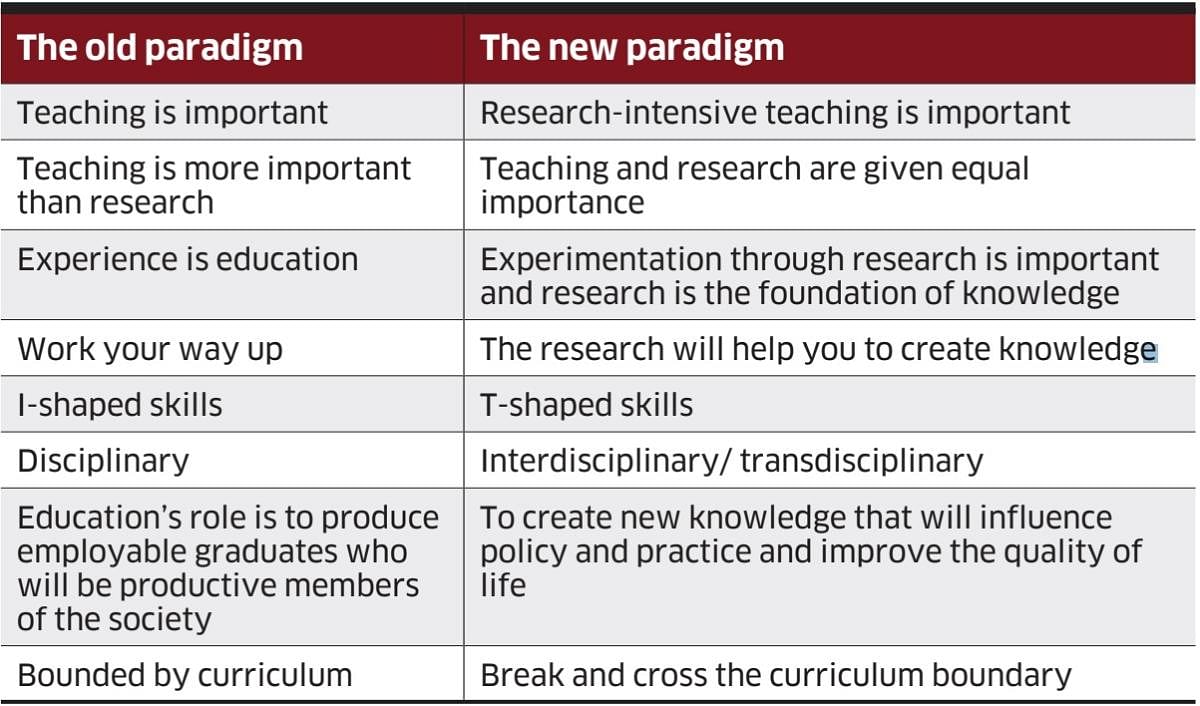Change is the only permanent thing. A positive change in the current education system can happen only with research and innovation. They give visibility and sustainability to people and institutions involved, but not much emphasis has gone into it in the Indian context.
To begin with, let's answer this simple question: Why are Indian business schools lagging in research, development and innovation? Any keen academic observer can say that management education and research in India are not on the right track.
Research results in new theories and concepts that get added to the knowledge base periodically. The changes caused by academic research are both practical and cultural.
However, research is not a core activity in the teaching-learning process, so no one is compelled to take it up. Research may or may not be a direct attribute of quality teaching in academic institutions but it is a critical attribute for the growth and sustainability of students and the institution to achieve excellence.
Research is important in every field. The business world heavily benefits from academic research. Businesses use research to understand markets and make profitable decisions. This benefits consumers as well. A business wouldn’t be effective if it has no idea what consumers wanted. Alternatively, consumers would be disappointed if businesses didn’t know their needs. Research helps in all areas of teaching by keeping people updated, curious and continuous learners.
Gone are the days when professors used to engage with the classes with the "Chalk and Talk" method. Nowadays classroom engagements are really challenging for the teachers due to the proliferation of information, calling for a paradigm shift from old to new.
Research helps expand the knowledge of the teachers and build their credibility. Shared values always help in setting high goals and facilitate performing the activities of greater significance.
Why should teachers do research?
Preparing for classes, presentations, meetings, invigilation, evaluation, discussions with students, administrative tasks — the life of a professor is full of such tasks, and eight working hours feel insufficient. According to a recent study by Ziker and et.al, 30% of the time “was spent on activities that are not traditionally thought of as part of the life of an academic.”
This is a challenge. However, where there is a will, there is a way. Research activities bring visibility and rewards, such as publications, tenure and promotions, for faculty members. A project that gives better elevation both on the professional and personal front is worth taking up.
Here are a few simple tips to achieve this:
Improve your time management by listing everything that you absolutely have to do.
Create a flexible and realistic life schedule
Plan your research work appropriately
Protect your research time
Academics who manage to achieve success in research do so not because of their inborn talents but purely because of their perseverance. They get recognised based upon their research output, and not based on positions.
Imbuing a research culture in an institution is not just about publication, patent or research grant. It involves creating an atmosphere of passion, interaction, healthy discussions and criticism. In the end, it is all about your desire.
(The author is a professor and head of research at a leading B-School in Bengaluru.)
